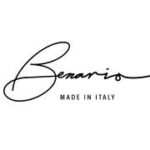What is Private Label Jewelry Manufacturing?
Private label jewelry manufacturing is a process involving a manufacturer that produces jewelry items to be sold under a retailer’s or brand’s own label. In other words, rather than selling the items under the manufacturer’s branding, they are sold under the retailer’s or brand’s name. This approach allows retailers and brands to offer unique, customized jewelry pieces without the additional need to have their own manufacturing facilities. Private label manufacturing enables brands to control aspects such as design, material quality, and pricing, which gives them more flexibility to cater specifically to their target market’s preferences and trends. This business model is especially popular among fashion retailers, online boutiques, and independent designers who want to expand their product offerings with exclusive jewelry lines. Private label jewelry manufacturing offers a cost-effective way to develop and market a brand-specific line of jewelry, ranging from high-end to more affordable pieces, including necklaces, bracelets, earrings, and rings. By doing so, it enhances brand identity and customer loyalty.
What is the size of the jewelry manufacturing market?
The US Jewelry Manufacturing industry has an estimated revenue of $21.4 billion in 2024, witnessing a 2.3% CAGR decline over the past 5 years, with the top 4 companies contributing to 50% of the market revenue. Globally, the jewelry market was valued at $256 billion in 2021 and is projected to reach $517.27 billion by 2030, growing at an 8.25% CAGR. Specifically, from 2024 to 2030, it is anticipated to grow at a CAGR of 4.7%, with the costume jewelry segment expected to rise by 7.2%. In summary, the global jewelry market is substantial and expanding, with the US jewelry manufacturing industry accounting for a significant portion of revenue.
What are the most common private label jewelry items?
The most common private label jewelry items include necklaces, rings, earrings, bracelets, and hair clamps. Small businesses and startups often opt to customize and private label these fashion jewelry pieces as a means to establish their brand identity and avoid competing solely on price. Key considerations in this strategy involve selecting appropriate materials such as gold, silver, or zircon, designing unique styles and packaging, and keeping abreast of current jewelry trends. Private label jewelry allows businesses to differentiate their products, cultivate brand loyalty, and achieve higher profit margins compared to selling generic jewelry. Given the competitiveness of the fashion jewelry industry, developing a unique jewelry line under one’s brand name proves to be an effective strategy for standing out in the market.
What is Jewelry Contract Manufacturing?
Jewelry contract manufacturing is a specialized service wherein a business outsources the production of its jewelry designs to an external manufacturer. This model helps jewelry brands and designers create unique and custom-designed pieces without the need to own and operate their own manufacturing facilities. Contract manufacturers provide the necessary expertise, technology, and skilled labor to produce high-quality jewelry items, ranging from intricate handcrafted pieces to mass-produced items, based on the specific designs, materials, and quality standards specified by the client. This arrangement is particularly beneficial for both small and large businesses. Small designers who want to bring their creations to the market without significant upfront investment can benefit from this kind of partnership. Established brands can also expand their product lines efficiently. By partnering with a contract manufacturer, the companies can pay mind to design, branding, and sales while leveraging the production capabilities and scalability of experienced manufacturers to meet demand and maintain quality control.
How to Find the Best Jewelry Private Label & Contract Manufacturers?
If you’re looking for the best jewelry private label and contract manufacturers, it’s important to have a strategic approach to ensure that your brand’s quality standards, aesthetic, and production needs are met. First, conduct thorough research to identify manufacturers with a solid reputation in the jewelry industry, particularly those that specialize in the type of jewelry you aim to produce. You can do this by attending trade shows, networking within the industry, and joining jewelry-related associations. It’s important to assess potential partners based on their production capabilities, quality control processes, ability to scale demand, and their experience with similar brands or products. You should also request samples to evaluate craftsmanship and material quality. Additionally, consider their transparency, communication, responsiveness, and willingness to work closely with you to bring your vision to life. Finally, ensure that they adhere to ethical manufacturing practices and sustainability standards, as these factors are increasingly important to consumers and can significantly impact your brand’s reputation.


